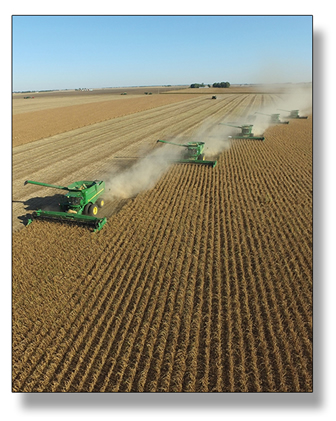Getting the Most from Your Energy Dollar...
Using Energy Wisely on the Farm and Ranch
There’s no avoiding this reality in farming: Direct energy accounts for 5 to 7 percent of farm expenditures; indirect energy accounts for 9 to 10 percent. Because small farms operate on profit margins well under 10 percent, efficiency measures that reduce energy costs can make a real impact.
The following websites offer online tools that can be used to make high-level efficiency, cost savings calculations. While these calculators do not offer the level of detail recommended for project implementation, they will give a general sense of the size of opportunity linked to a best management practice for your operations.
Below you'll find links to several energy calculators. Keep in mind that each of the tools described here has its own unique uses and limits. Check them out to see which might work for your operation.
 Farm Energy Efficiency Checklist and Tips
Farm Energy Efficiency Checklist and Tips
Efficient use of energy becomes increasingly important with rising energy costs. Energy efficiency is determined by comparing what is actually produced or performed to what could be produced or performed with the same consumption of energy resources.
Although many changes to improve energy efficiency can usually be implemented immediately on a farm, long term efficiency gains come with planning when new or replacement equipment is purchased or new structures are built.
Reducing the amount of energy consumed on the farm not only saves money but also reduces possible pollution and limits the consumption of non-renewable resources.
The links below lead to a set of questions to ask and specific recommendations in different areas of farm energy use that can help improve efficiency and reduce expenses:
- Farm Lighting Energy Efficiency Checklist and Tips
- Farm Shop Energy Efficiency Checklist and Tips
- Grain Drying Energy Efficiency Checklist and Tips
- Greenhouse Energy Conservation Checklist
- Home Energy Efficiency Checklist and Tips
- Irrigation Energy Efficiency Checklist and Tips
- Livestock Buildings Energy Efficiency Checklist and Tips
- Livestock Watering Systems Energy Efficiency Checklist and Tips
- Tractor and Field Operations Energy Efficiency Checklist and Tips
Introduction to Energy Efficient Irrigation
Irrigation is very important to productive agriculture, accounting for 20% of all farmland and 40% of all production worldwide. This is the major use of water in the world, accounting for about 70% of all freshwater use. Efficient irrigation systems use energy-efficient equipment and designs, and also minimize the amount of unnecessary water use, adding to the energy savings. As a result, farms that irrigate efficiently will not only reduce their operating costs but will also reduce the use of water resources that are increasingly scarce. There are two main ways a farm can improve the efficiency of its irrigation efforts: 1) improving the irrigation system, and 2) enhancing the management and operations of the system. Visit eXtension.org for the latest information on energy efficient irrigation methods.